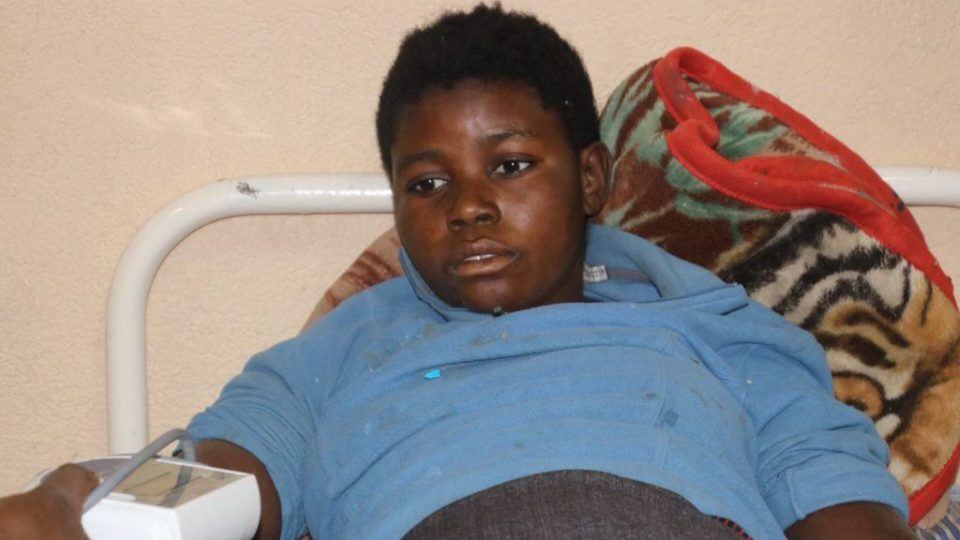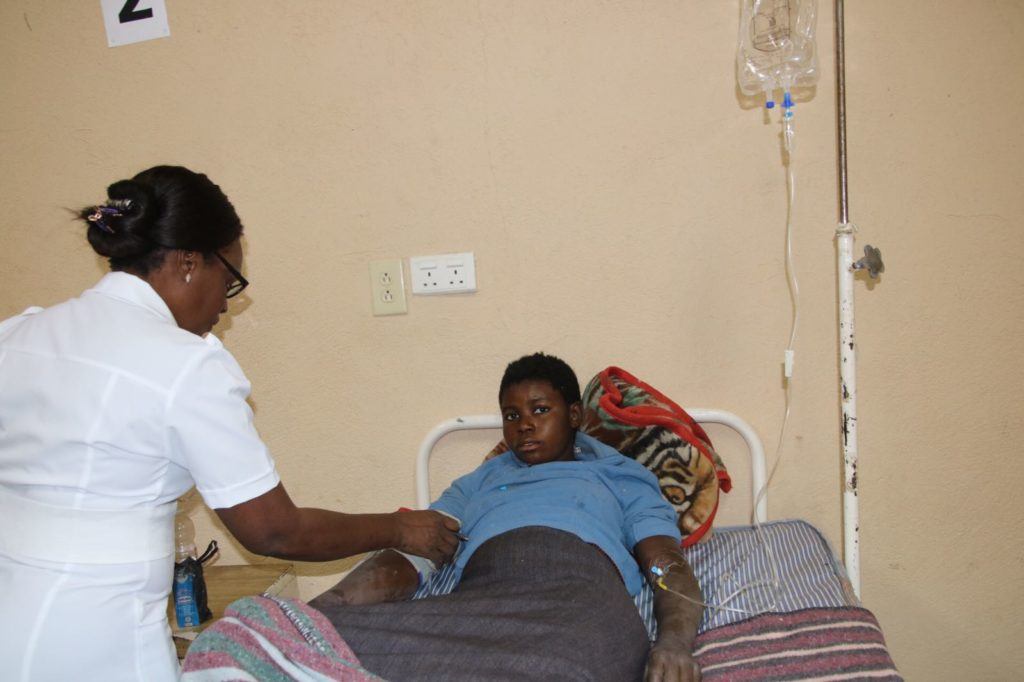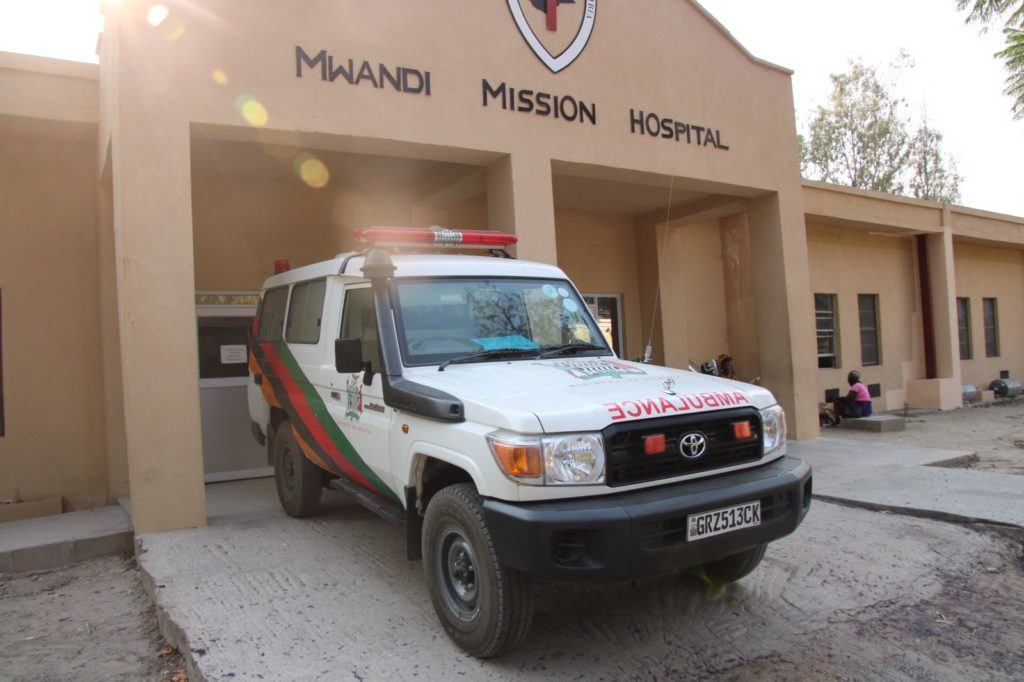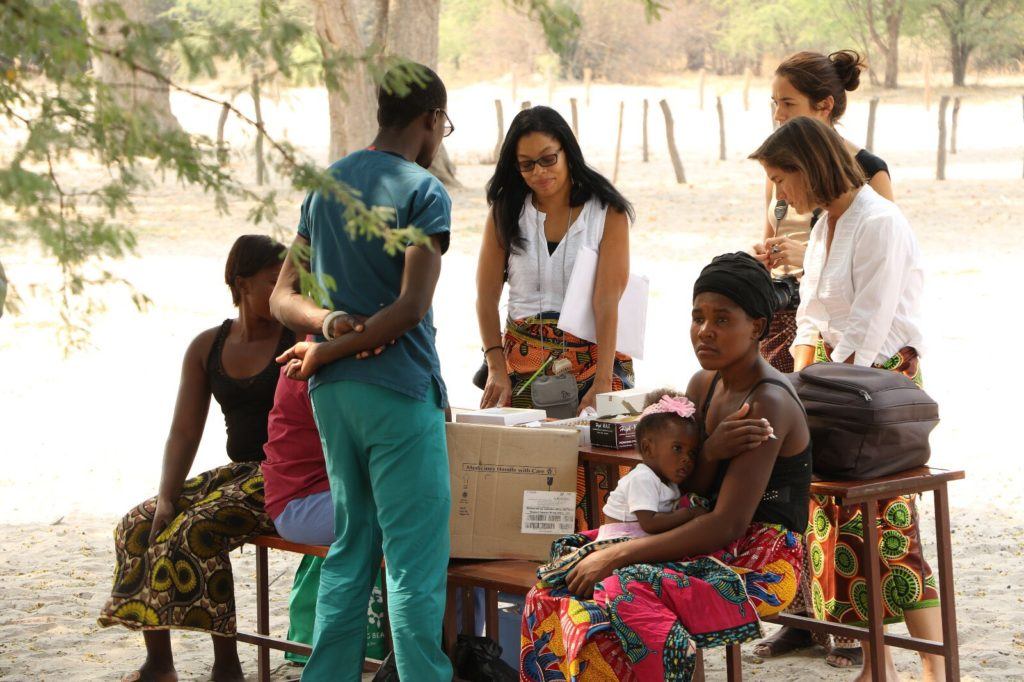A Chance for a Mother in Mwandi

Danielle Aruz Beidleman is one of three doctors who recently served on a nine-day medical mission trip in Mwandi, Zambia. Here she shares a story that highlights some of the challenges faced by healthcare professionals and facilities in rural areas.
Many things happened during our first full day in Mwandi, but I will jump to the story of the sick patient we encountered during our hospital tour.
While passing the gynecology ward a patient caught my eye. I noticed that she seemed pretty lethargic and was being hydrated with IV fluids, so I asked the staff about her condition.
We were informed that the patient was having a miscarriage, but still had tissue remaining in her uterus. This already sad issue was complicated by severe anemia and a critically low platelet level. A low platelet count can prevent the body’s ability to effectively clot blood, which contributes to risk of further bleeding.
The staff seemed unsure about how to handle the patient, but were considering a medical procedure known as a D&C. We spoke briefly about this. I became gravely concerned as I listened to the patient’s plight, knowing the fragility of her situation.
When the tour was over and we moved towards the exit of the hospital, I spoke to the doctor again. I asked the doctor about her plan of care for the patient. She explained that she would proceed with the medical procedure (D&C) that same evening.
The doctor looked concerned, but knew that if she did not do the procedure, the patient would continue to bleed overnight and her situation would worsen. We parted with the doctor, but I still felt concern. There was uncertainty about the best treatment for the patient given the few options offered by the hospital.
I knew that a blood transfusion would be of huge benefit to the patient – it would help to improve both her hemoglobin and platelet level – which would make her stronger before adding any additional trauma to the lining of the uterus with the medical procedure. Without it, she would be at risk of increased bleeding.
I spoke with the medical staff about the possibility of a transfusion, but learned that the hospital was no longer permitted to perform blood transfusions. As a result, the patients only option for survival while at Mwandi Mission Hospital was to risk doing the medical procedure.
I talked with the medical mission team about my concerns for this patient, and as a group we decided to back track and discuss other options with the doctor. I recommended that the patient be transferred to Livingstone for the blood transfusion and the medical procedure.
The doctor considered the idea, while acknowledging several barriers. She was unsure if the hospital would accept the patient, whether they had any blood at all and if so, would it be a match? And finally whether or not the ambulance could provide the transfer considering the time of day.
The issue about transportation became exacerbated after speaking with the hospital administrator who voiced concerns about lack of fuel in the vehicle, which would only accommodate the trip to Livingstone, but not the return. The hospital was expecting fuel the following day, and considered waiting but knew that it would probably increase the patient’s risk for decompensating overnight.
The hospital did not have emergency cash on hand to obtain return fuel for the ambulance. Knowing that this was a matter of life and death, I offered to pay for the fuel in an effort to get the patient to a higher level of care where she could get a blood transfusion and improve her chances.
The hospital administrator agreed to the gift, and they prepared the patient to be transferred. While awaiting the ambulance I learned that the young woman was the mother of two, with young children. I could not bear the thought that they might lose a mother because of a lack of money for fuel.
Once safely in the ambulance, she was transported along with an additional unexpected patient to Livingstone; a more than two hour journey over very difficult terrain. We do not yet know the outcome. When we learn anything we will share it.
Update
We received wonderful news! After four days at the hospital in Livingstone, this Zambian mother of two returned safe and sound to her family in Mwandi. While at the hospital she received a minor surgical procedure and a blood transfusion, which likely saved her life.
Everyone deserves a chance to receive the healthcare they need, when they need it.
CMMB Volunteer Interest Form
We’re excited that you are interested in volunteering with us! Please fill in this brief interest form to let us know a little bit about yourself.


